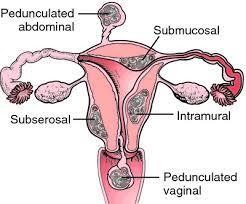A 23-year-old sexually active female presents with white copious discharge and itch and is diagnosed with yeast vaginitis. This condition is caused by overgrowth of which
microorganism?
Candida albicans
Lactobacillus acidophilus
Escherichia coli
Neisseria gonorrhoeae
The Correct Answer is A
Choice A rationale: Yeast vaginitis, commonly known as a yeast infection, is typically caused by an overgrowth of Candida albicans, a type of fungus. Candida albicans overgrowth can lead to symptoms like white, thick discharge and itching in the vaginal area.
Choice B rationale: Lactobacillus acidophilus is a bacterium associated with maintaining vaginal health rather than causing yeast infections.
Choice C rationale: Escherichia coli is a bacteria that can cause different types of infections but are not typically associated with yeast vaginitis.
Choice D rationale: Neisseria gonorrhoeae is a bacteria and does not cause yeast vaginitis despite having similar presentation such as pus discharge per vaginally.
Nursing Test Bank
Naxlex Comprehensive Predictor Exams
Related Questions
Correct Answer is A
Explanation
Choice A rationale: After visual inspection, the next step typically involves auscultation, which allows the nurse to listen for bowel sounds and gather information about
gastrointestinal function.
Choice B rationale: Percussion involves tapping the abdomen to assess density or abnormal masses but usually follows auscultation.
Choice C rationale: Palpation, both light and deep, follows percussion in the sequence of an abdominal examination.
Choice D rationale: Similar to light palpation, deep palpation follows auscultation and percussion in the sequence of an abdominal examination.
Correct Answer is B
Explanation
Choice A rationale: Adenomas are benign tumors that originate from glandular tissue, such as the endometrium, the inner lining of the uterus.
Choice B rationale: Leiomyomas, also known as fibroids, are benign tumors that arise from the smooth muscle cells of the myometrium, the middle layer of the uterine wall. They are the most common type of uterine tumors, affecting up to 80% of women by age 50. They can cause symptoms such as heavy menstrual bleeding, pelvic pain, pressure, and infertility.
Choice C rationale: Endometriosis is a condition where endometrial tissue grows outside the uterus, causing inflammation and pain.
Choice D rationale: Adenomyosis is a condition where endometrial tissue invades the myometrium, causing enlargement and distortion of the uterus.

Whether you are a student looking to ace your exams or a practicing nurse seeking to enhance your expertise , our nursing education contents will empower you with the confidence and competence to make a difference in the lives of patients and become a respected leader in the healthcare field.
Visit Naxlex, invest in your future and unlock endless possibilities with our unparalleled nursing education contents today
Report Wrong Answer on the Current Question
Do you disagree with the answer? If yes, what is your expected answer? Explain.
Kindly be descriptive with the issue you are facing.
